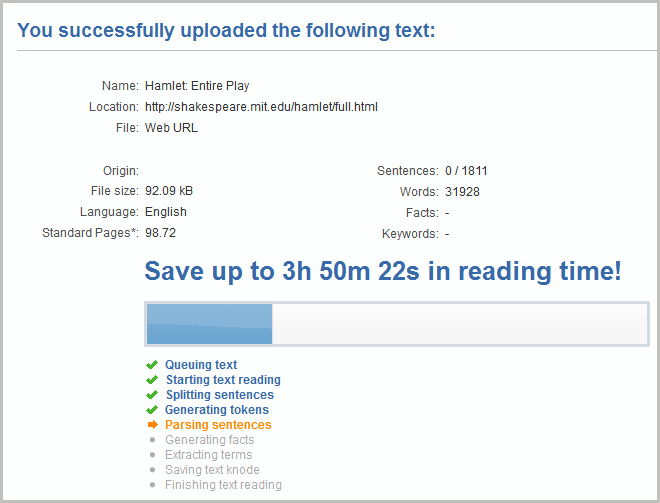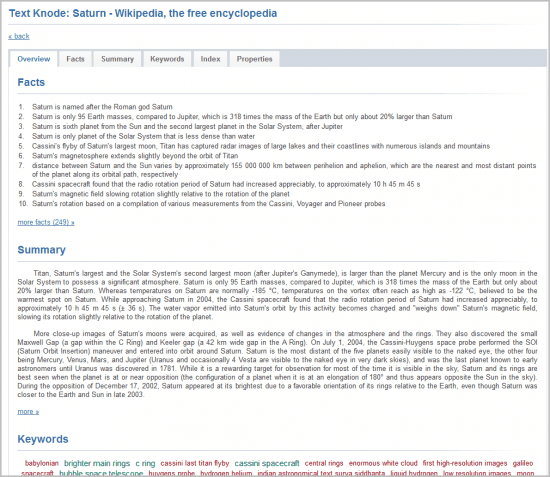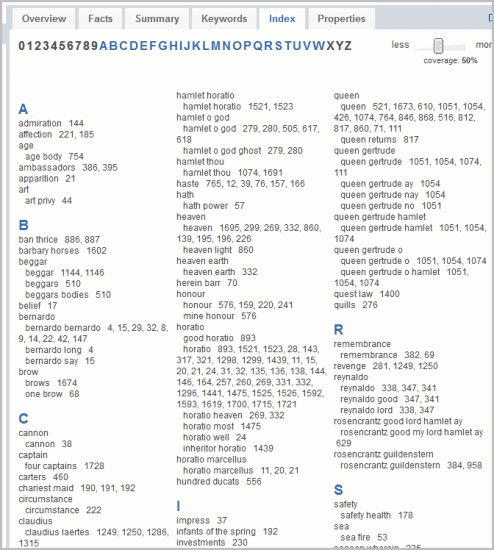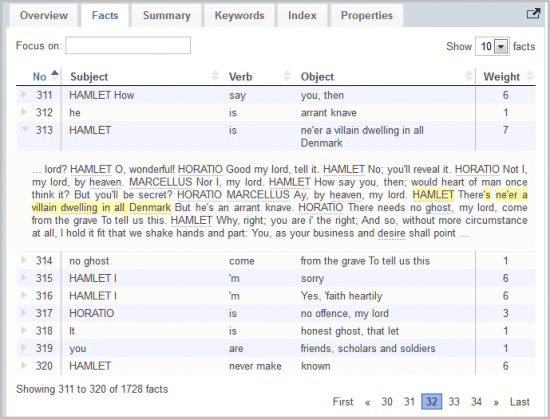Topicmarks Summarizes Text Documents For Faster Learning

Would not it be great if you could get a two paragraph summary about Shakespear's Hamlet instead of having to read the whole book? The answer is no of course, but bare with me for a moment. Sometimes you do not have enough time to read all of a text document. Maybe you have a few minutes before you enter a meeting or before class and you just want quick facts, a fast synopsis or summary of the document.
That's where Topicmarks can aid you. The service is currently in beta and free, but the developers plan to add a point system later on where everyone gets a few free points they can use to create text summaries.
Topicmarks can process documents that you upload from your computer, text that you paste directly in the interface or website addresses that it then parses automatically. You need to create an account before you can access the information, but the creation is fast (you only need to enter an email address, temporary email services work).
The service sends you an email whenever it has finished processing a text that you have added to your account. During the processing it will show you how much time you can save in reading, understanding and memorizing the text. The figures appear to be a bit far of, considering that the service estimates that you can read and memorize Shakespear's Hamlet in less than 5 hours.
Topicmarks displays an overview for each processed text, that displays some of the important facts, a summary and keywords. Each of those items plus a word index are accessible via tabs in the main interface.
How reliable are the information provided by Topicmarks? That depends largely on the analyzed text. The facts and overview work best on factual texts like Wikipedia's information about Saturn. The facts and summary of the Hamlet text on the other hand were not usable at all. That does not necessarily mean that it was not useful to process the Hamlet text, considering that you get a word index and keywords that you can explore.
The index lists the most prominent words and phrases of the text. A slider at the top can be used to increase or decrease the coverage. This can be very handy to find all occurrences of Horatio, the queen or Hamlet in the play. Each entry is linked to the facts section and the full paragraph of the text.
That's in my opinion the biggest strength of Topicmarks. The overview and facts are nice on their own if the service manages to get them right. But the index is useful despite that, even if the facts and summary do not make sense at all.
Topicmarks users can install a bookmarklet in their web browser to send text that they encounter on the web to the service. Text can also be imported from Evernote, or send by email to Topicmarks.
You can head over to the Topicmarks website if you would like to test the service. A similar service that is only displaying page summaries is WikiSeer Keynotes for the Firefox web browser or the web service Great Summary.
Update: Topicmarks has discontinued operations on July 15, 2012 and is no longer available. A relatively new alternative is Too Long Didn't Read.
Advertisement























summary
No longer in service now unfortunately.
Thanks for letting me know about that. I have updated the article and added an alternative to the end of it.
An interesting tool which can be useful.
“When words are scarce they are seldom spent in vainâ€.
— William Shakespeare
The only writer who never wasted a single word.
The once and forever king of the written word.
I really love some of Shakespeare’s works, especially Hamlet and some poems. If you say that he was king, I say that Goethe was emperor :)
Since you are German I can
understand your point of view :)
Harold Bloom wrote Goethe admitted
Shakespeare’s superiority but I
never found where he did.